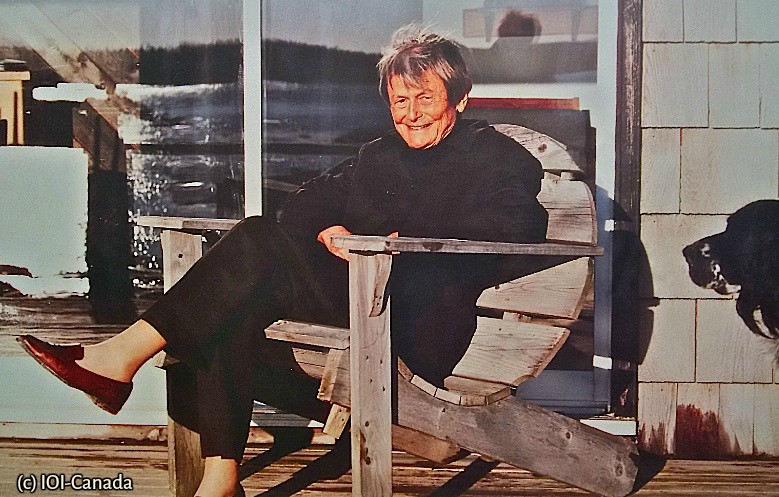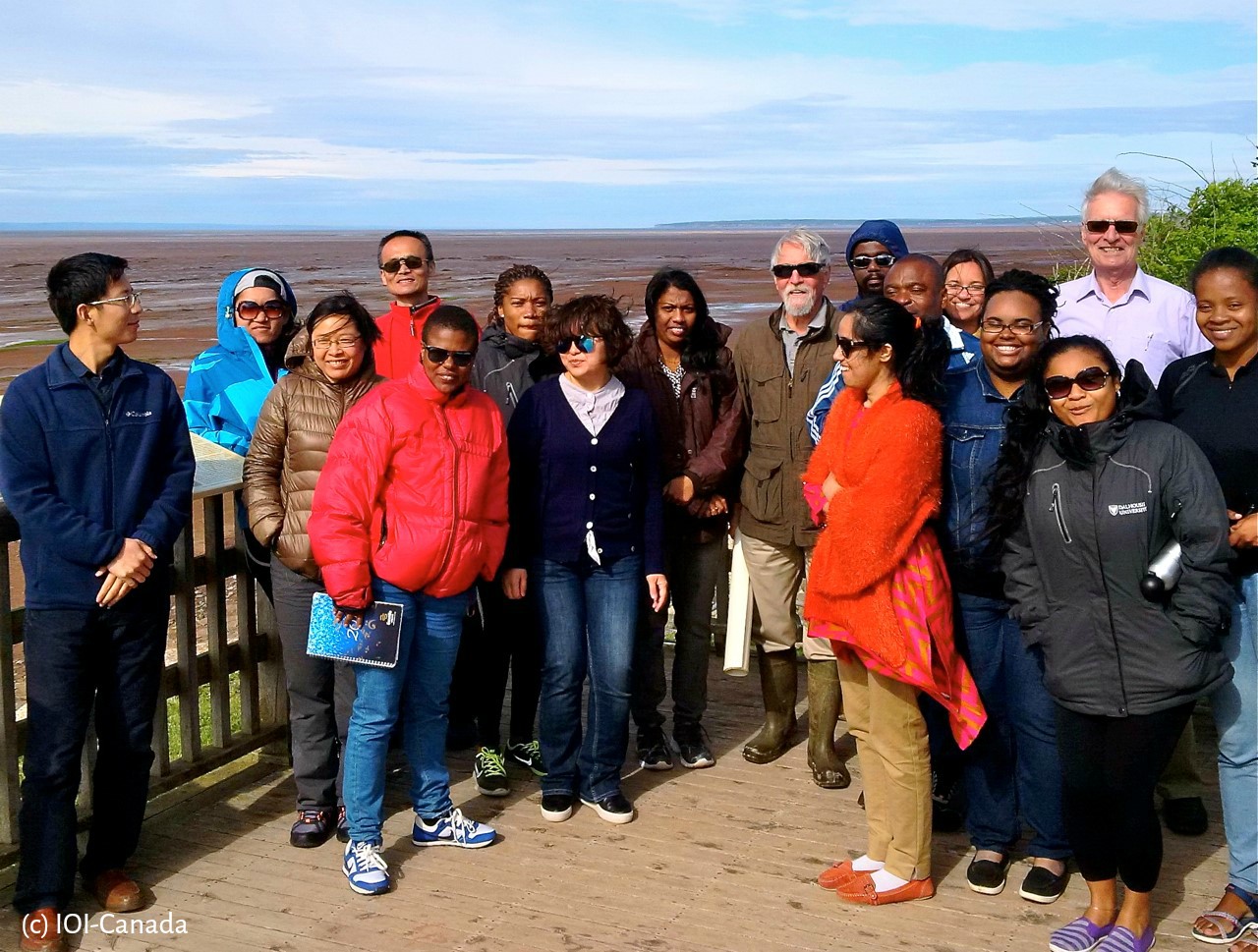Jun 8, 2017 - Kerstin Kormendy for SoGerman
German-born advocate of the ocean and an Order of Canada recipient, Elisabeth Mann Borgese (1918-2002) will be recognized today on World Ocean Day at the annual EMB lecture in Halifax. She made significant contributions to the negotiations of the UN Law of the Sea Convention.

Elisabeth Mann Borgese, daughter of the famous German author Thomas Mann, was a citizen of the world. She grew up in Germany, but her family had to leave because of their opposition to the Nazis. She lived in Switzerland and the United States before finally setting in Nova Scotia.
She taught in the political science department at Dalhousie University in Halifax from 1978 until she passed away in 2002. Outside of the classroom, she continued her work with the International Ocean Institute (IOI) that she founded together with Arvid Pardo, former Ambassador of Malta to the United Nations, in 1972.
“She was convinced that a different perspective is needed regarding governance of the ocean, “says Dirk Werle, a board member of the NGO International Oceans Institute Canada Association in Halifax.
Sparked by fond memories of childhood vacations at the North and Baltic Sea, Elisabeth “became a forceful advocate and active participant in the negotiations for UN Law of the Sea Convention,” says Dirk.
“The ocean space was so very different from the land-based space that humans inhabit; consequently, land-related governance structures […] couldn’t really be applied to the ocean realm. This necessitated a different governance model, one that recognized the ocean as a common heritage of mankind.”

The IOI is part of Elisabeth Mann Borgese’s legacy, promoting peace and respect for the oceans, as well as training for future leaders. IOI centres can be found around the world. Their headquarters are located in Malta, where IOI was originally established.
“Elisabeth, who was also a member of the Club of Rome, had won over many experts for her interdisciplinary ocean network. She shaped the framework [of the IOI],” says Dirk Werle. “She had many visitors, some very high-ranking, who came to Halifax to confer with her on ocean-related matters, the Law of the Sea, and ocean governance.”
Today, her ideas on ocean governance are still alive at Dalhousie University, for instance at the Marine Environmental Law Institute and in the Marine Affairs Program. This year, IOI-Canada is holding its 37th consecutive summer courses on ocean governance. This training program has a network of more than 600 alumni from over 100 nations, the majority among them developing countries.
“There are still a number of Dalhousie faculty members who remember [Elisabeth] very well, either as a mentor, colleague, or teacher,” says Dirk. “At Dal and IOI, she was recognized as a strong personality, with incredible energy, and an exceptional network of connections spanning the globe.”
Please visit the Elisabeth Mann Borgese archive at Dalhousie for more information on her works.
Elisabeth Mann Borgese’s story is told in the exhibition “Canada and Germany: Partners from Immigration to Innovation”, which the Embassy of the Federal Republic of Germany is presenting in Ottawa from June 27 – July 26, 2017.
With files from Johannes Heinemann